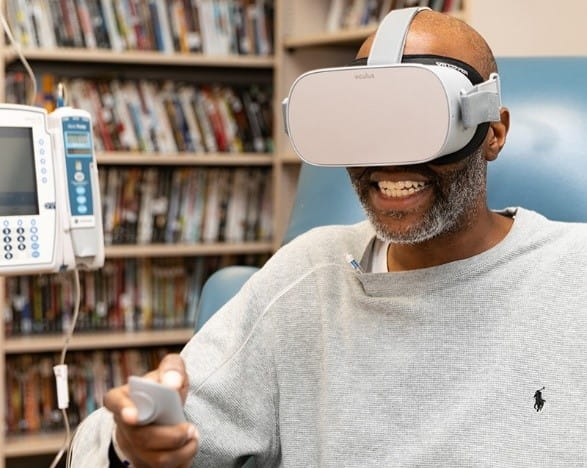Charles Frierson has been undergoing cancer treatment since his diagnosis in 2008, but this year treatment became – and looked – a little different.
Now, when Frierson undergoes chemotherapy treatments at the Riverside Cancer Care Center in Newport News, instead of looking around at a medical office, he escapes to the beach or a snowbound mountain cabin through the use of virtual reality goggles.
The use of virtual reality for cancer patients comes as a result of a new program piloted by Riverside Health.
Virtual reality goggles are the latest innovation aimed at helping patients relax and de-stress while receiving treatment to heal. Research suggests virtual reality technology provides a distraction to patients and can ease pain and anxiety in hospital settings.
For Frierson, slipping on the lightweight goggles is a game changer.
“You really just put on a headset and are in a different world,” he said.
Funding raised from local donors through the Riverside Foundation’s annual Day of Giving in December 2018 supported the purchase of several goggle sets to pilot this program at Riverside’s cancer centers in Newport News and Williamsburg.
Riverside Music Therapist Greg Gernon, who helps coordinate the virtual reality options, said patients who use the goggles report less stress.
“This can help someone overcome a needle phobia or manage nerves over how well the treatment is working and what the future holds,” Gernon said. “We’re just trying to provide people with whatever support tools they need to get them over the hump.”
There’s also an application that in the future could allow patients to participate in real-time virtual support groups with others at Riverside who are receiving cancer treatment.
A patient like Frierson could keep his identity anonymous while interacting with fellow cancer patients who may have some shared experiences.
“That would be a good aspect, I think, to get your thoughts out there during treatment,” Frierson said. “It would be like social networking but with patients ― and maybe someone who would be male and have breast cancer, like me.”
